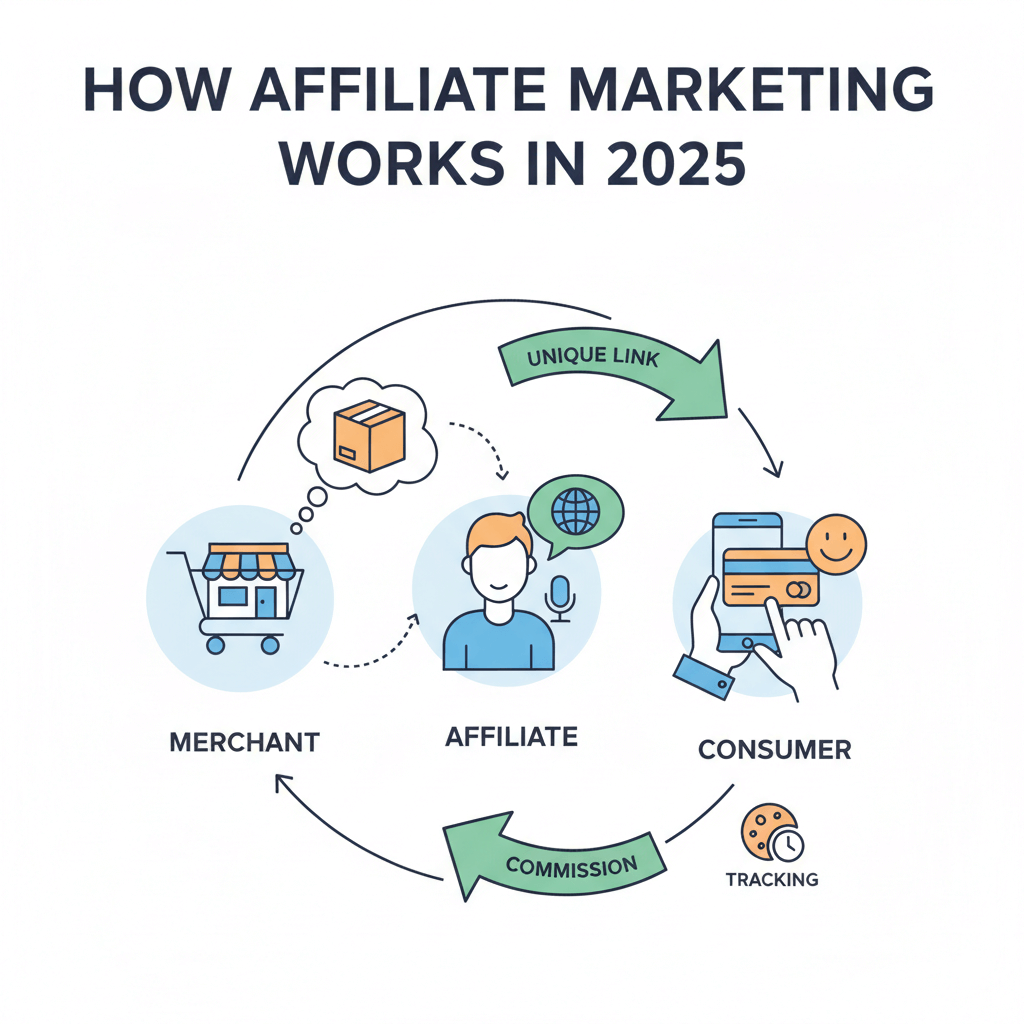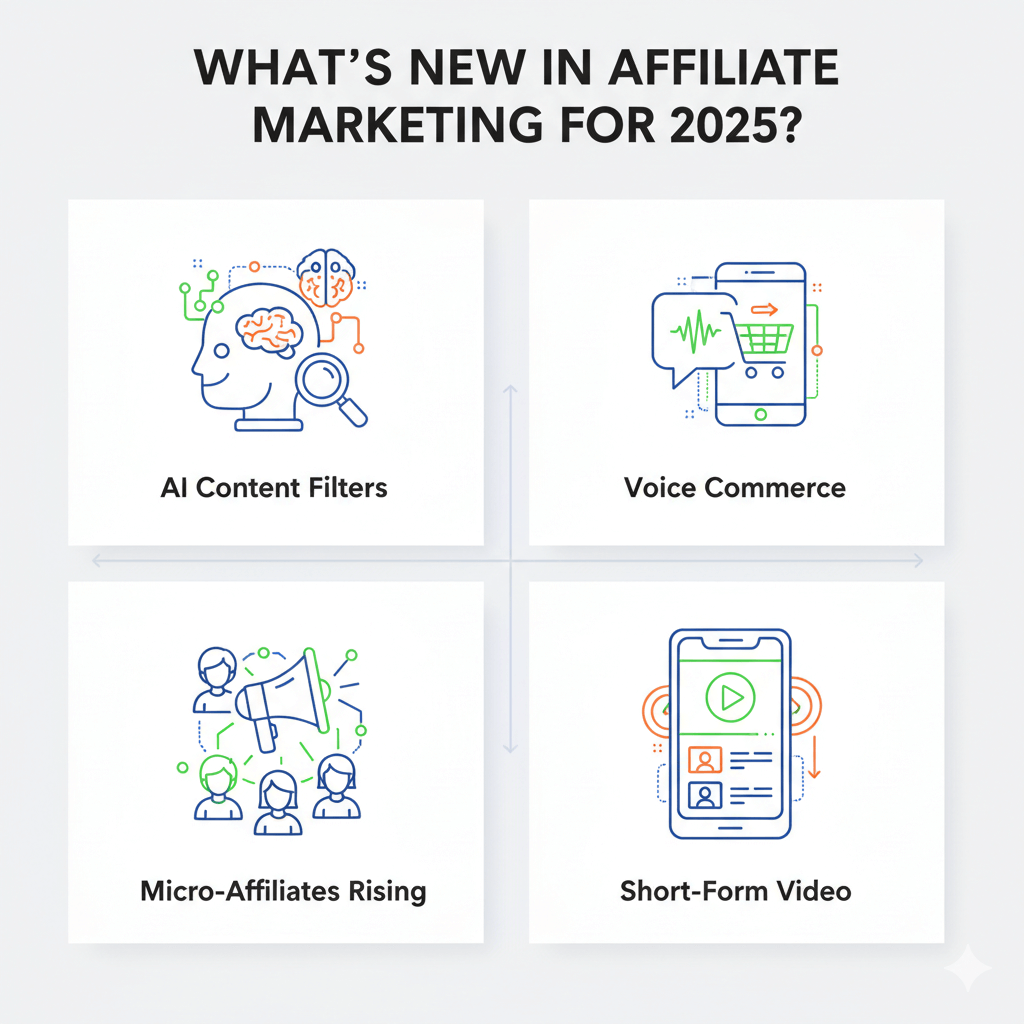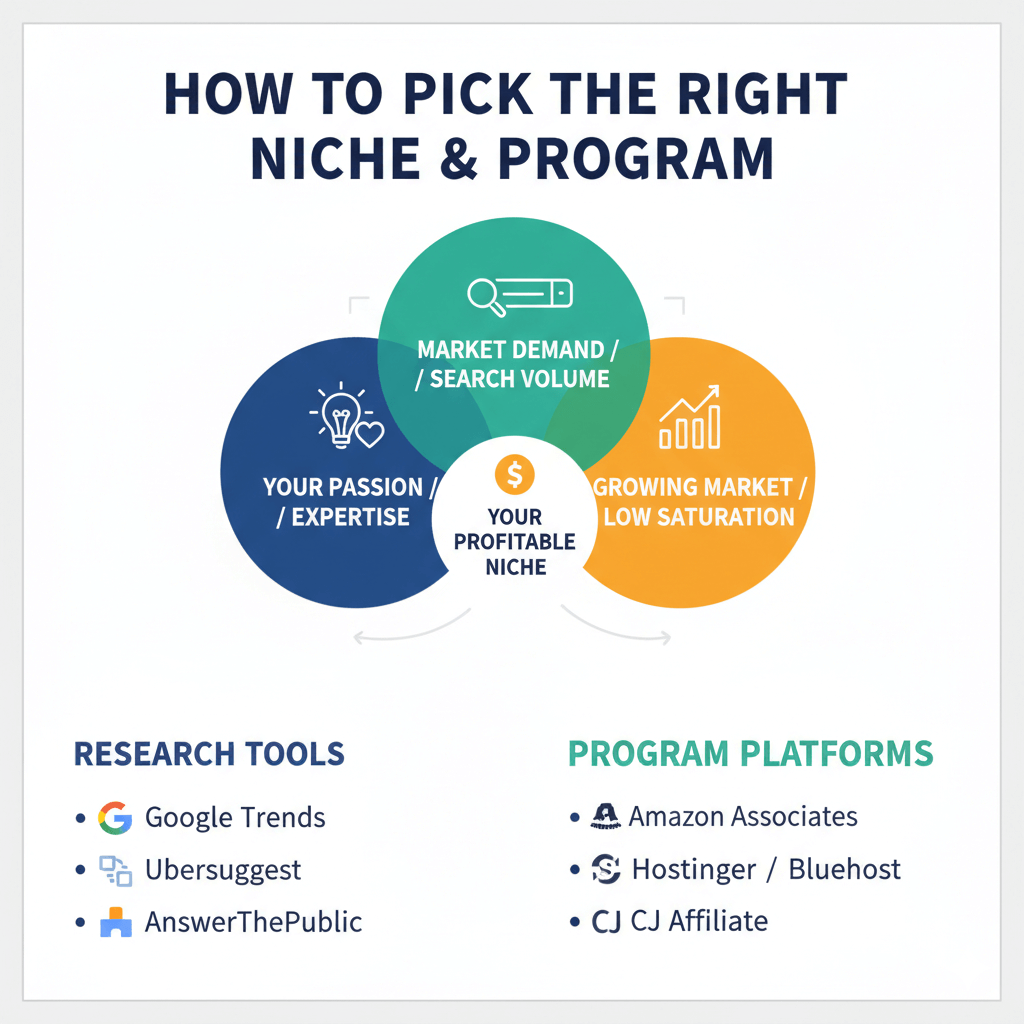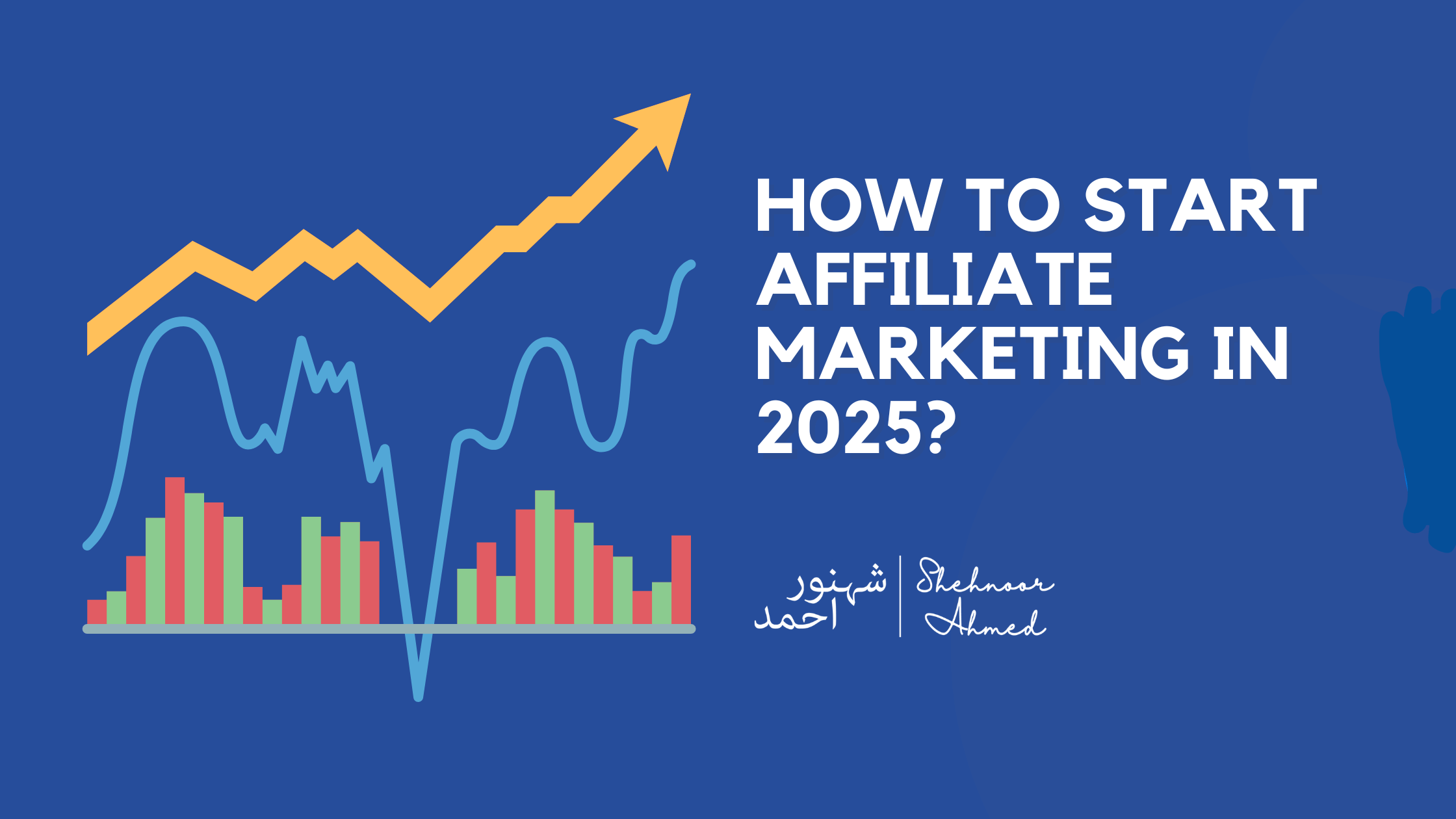Why Affiliate Marketing Still Works in 2025
Affiliate marketing isn’t just surviving, it’s thriving. In 2025, it’s still one of the simplest and most flexible ways to earn money online, even if you’re just getting started.
At its core, affiliate marketing is all about promoting someone else’s product or service and earning a commission when someone makes a purchase through your unique link. It’s like digital word-of-mouth, but with a paycheck.
Even with all the changes in tech and consumer behavior, affiliate marketing continues to grow. Why? Because people are spending more time (and money) online than ever before. With tools like voice assistants, mobile-first websites, and instant checkout systems, consumers are making decisions faster, and smart affiliates are cashing in on those moments.
How Affiliate Marketing Actually Works

Let’s break it down. There are three main players:
- Merchants: These are the companies selling the product or service.
- Affiliates: That’s you! The person promoting the product.
- Consumers: The folks who click your link and (hopefully) make a purchase.
When you join an affiliate program, you get a special link. If someone clicks that link and buys something, you earn a cut. Cookies track the sale, so even if they don’t buy right away, you might still get the credit if they purchase within a set period (often 24–90 days).
Think of it like this: You tell a friend about your favorite restaurant. If they go and mention your name at the door, and the restaurant hands you a small thank-you, that’s basically affiliate marketing in a nutshell.
What’s New in Affiliate Marketing for 2025?

This isn’t the same affiliate game from 2018. Here’s what’s changed:
- AI content filters: Platforms are getting better at spotting and downranking low-quality, AI-generated fluff. That means authentic content wins.
- Voice commerce is real: People are buying stuff by just asking Alexa or Google. So your content needs to answer those voice-style questions.
- Micro-affiliates are rising: You don’t need millions of followers. Smaller creators with loyal, engaged audiences are actually converting better.
- Advanced affiliate tools: Platforms now offer real-time analytics, mobile tracking, and fraud protection, so you get paid fairly and fast.
- Short-form video is huge: Think TikTok, Instagram Reels, and YouTube Shorts. Product demos in 30 seconds? They sell.
Also read: Mastering TikTok Ads: Everything You Need to Know for More Revenue
How to Pick the Right Niche and Program

Don’t pick a niche just because it’s trendy. Pick one you can actually talk about without Googling every sentence.
Look for where these three overlap:
- Something you enjoy or have personal experience with
- People are searching for answers in that space
- The market isn’t too saturated and still growing
Research tools to try:
- Google Trends
- Ubersuggest
- AnswerThePublic
Picking an Affiliate Program
Try platforms like:
- Amazon Associates (broad, but low commissions)
- ShareASale (tons of niches)
- Hostinger or Bluehost (if you’re in tech)
- CJ Affiliate (great for finance, retail, and lifestyle)
Look out for:
- Cookie duration
- Commission %
- Payout methods
- How easy it is to get approved
Build Your Online Presence (This Is Key)
You don’t need a massive website on day one, but you do need somewhere to share your message and links.
Start With:
- A blog or website: Great for long-form content, SEO, and email list building.
- A YouTube channel: Ideal if you’re good on camera or love tech/product demos.
- One strong social platform: Pick the one your audience actually uses, whether that’s Instagram, TikTok, LinkedIn, or something else.
Content Ideas That Work in 2025:
- Product reviews and walkthroughs
- “Best of” or comparison lists
- How-to guides with real-world value
- Story-driven case studies (“How I used to [solve X problem]”)
SEO Tips for Beginners:
- Use long-tail keywords like “best beginner podcast mic 2025”
- Write for people, not Google
- Add value, answer real questions, and include FAQs
Affiliate Tools That Make Life Easier
You don’t need a huge tech stack to get started. Here are a few beginner-friendly tools to try:
- ThirstyAffiliates or Pretty Links – For managing and shortening links
- Systeme.io – All-in-one funnel, email, and course builder
- ConvertKit or MailerLite – For building an email list
- Google Analytics – To track which pages and links perform best
- Rank Math SEO – To optimize your blog posts and pages
- Hotjar – To see how people use your site and improve it
Avoid These Common Affiliate Marketing Mistakes
Even smart people fall into these traps:
- Spamming links everywhere: Focus on quality, not quantity
- Copy-pasting content: Google is smarter than you think
- Not disclosing your links: You have to tell readers it’s an affiliate link (FTC rule)
- Ignoring regulations (GDPR, etc.): If you’re collecting emails or tracking users, be transparent
- Chasing quick wins: Sustainable affiliate income is a slow game, but it pays off big
Tips From Shehnoor Ahmed for Real Affiliate Success
As a digital marketing consultant, I’ve seen what works, and what doesn’t. Here’s what I always tell beginners:
- Be consistent: Many people quit too early. Stay in the game.
- Put your audience first: Recommend products that help, not just what pays.
- Diversify: Don’t rely on just one program or one platform.
- Track, tweak, improve: Use your data. What’s working? Do more of it.
Affiliate marketing is not just about placing links, it’s about building trust and solving problems.
Real-Life Success Stories
- Tech YouTuber: Reviewed laptops weekly, earned a solid income from Amazon commissions and sponsorships.
- Wellness coach: Created an email series that recommended supplements and tools, turned into a steady revenue stream.
- Finance blogger: Wrote honest credit card comparisons and built massive SEO traffic over time.
All of them had two things in common: consistency and credibility.
What’s Next for Affiliate Marketing?
Here’s where things are headed:
- AI-based product suggestions tailored to individual visitors
- Voice-activated purchases through smart devices
- Better cross-device tracking to ensure affiliates get their fair cut
- More brand-affiliate collabs, affiliates becoming part of the product story
The line between influencer, consultant, and affiliate is blurring. That’s your opportunity.

FAQs
Q: Do I need a website to start affiliate marketing?
Not always. But having one builds trust and long-term SEO value.
Q: How long before I earn money?
Usually 3–6 months with steady effort, but it depends on your niche and content strategy.
Q: Is affiliate marketing still worth it in 2025?
Yes; especially if you focus on helping others, not just selling.
Q: What platform should I start on?
Start where you’re most comfortable. Blogs (WordPress), video (YouTube), or social (Instagram/TikTok), all can work.




